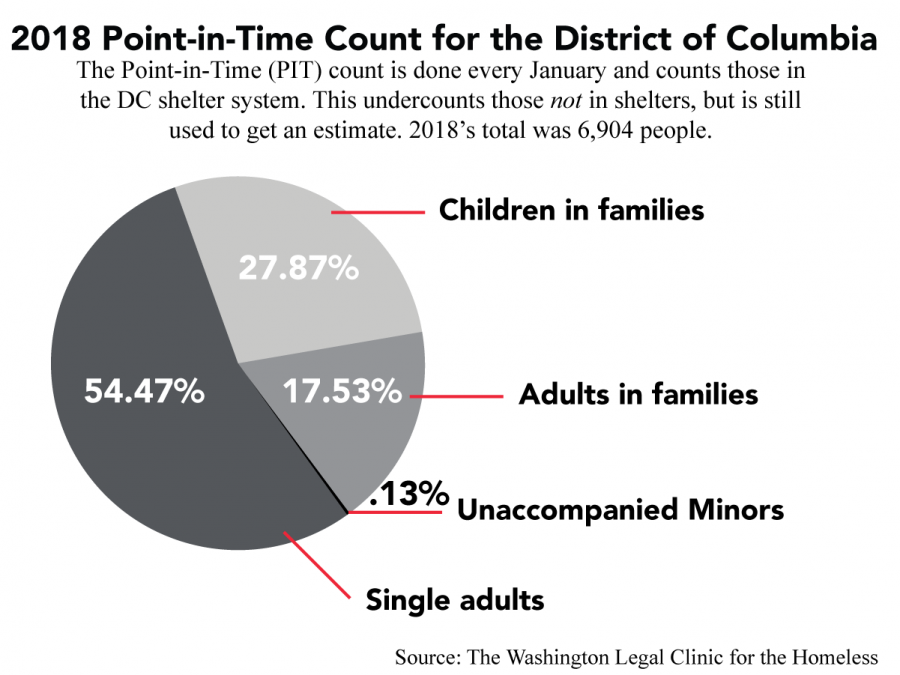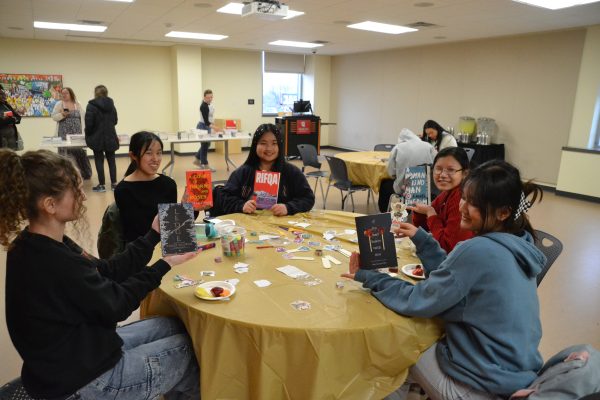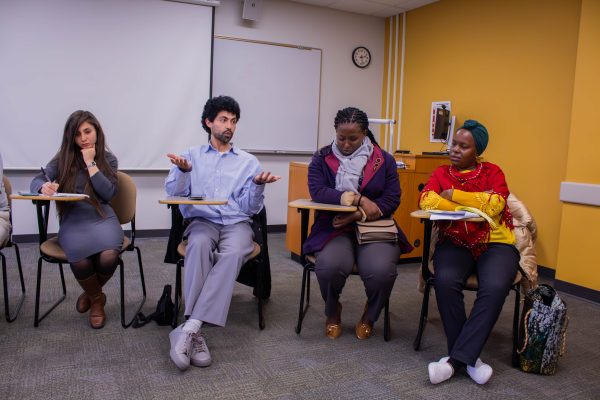The “Plunge”: pitfall or perk?
The activity where students simulate the homeless experience for 48 hours will no longer be part of a spring break service trip to Washington DC.
March 6, 2019
Sophomore Sophia Walker spent spring break trekking down O Street in Washington DC for hours, fruitlessly searching for a soup kitchen.
“By the time [I] had gotten there, it had closed,” Walker said.
For some, this is reality. For Walker it was a facade. She was participating in a Catalyst Alternative Spring Break Trip, one of four that Hamline led last year. Each trip goes to a different city and centers around experiential service learning on a social issue. Previously, the DC trip included participation in the National Coalition for the Homeless (NCH) Homeless Challenge Project, also called the ‘Plunge.’
During the Plunge, Pipers spent two days on DC’s streets with only a blanket and a trash bag each. They panhandled, donating what they did not use back to NCH. They slept on cardboard and were forced to vacate in the rain.
Participants were not told beforehand that their panhandling earnings would be donated back. While those genuinely experiencing homelessness often have no shelter from storms, the group ended their Plunge slightly early after some of them were evicted from their sleeping space in a downpour.
“Had it been the beginning, we still would’ve had to stay in the rain,” senior Deangela Huddleston said.
There is still a Catalyst trip to DC this year, but the Plunge is no longer included.
“It benefited the students more than it benefited the community,” senior Emma Kiley, a leader for this year’s DC trip, said. “When you’re doing some kind of service learning, essentially you’re trading information for some kind of volunteer work. So you go to an organization, maybe you volunteer with them for a couple hours, and in return, you learn a bunch of stuff about what they’re doing… but with the Plunge, there isn’t really a trade, because the people doing the Plunge are the people benefiting.”
Catalyst’s executive board discontinued the Plunge after hearing such criticisms, mainly from students unaffiliated with Catalyst, such as senior Tachianna Charpenter.
“[The Plunge] never should have been a part of the trip,” Charpenter said. “Imagine the reactions of some of those people if they were told that the students involved were not homeless, were on an ‘experiential’ spring break trip, and would eventually return to their relatively cozy lives at a private college? I imagine the information would rarely be received with open arms.”
Plunge participants heard otherwise.
“They didn’t care that we chose to try and experience homelessness,” junior and former trip leader Ricardo Martinez said. “They even thanked me for it because… it showed that people cared.”
Martinez also commented on the students’ visibility.
“[The Plunge is] a well-known program in DC. The police are informed and can easily point out those who are and are not experiencing homelessness,” Martinez said.
Walker agreed that it was clear the group was only pretending.
“When we went [to a soup kitchen], people actually thought that we were donating our blankets,” Walker said.
Martinez clarified that Plungers took no resources from the needy.
“It is impossible to go hungry in DC because of all the food providers and the quantity of food given,” Martinez said. “We were given a list of [three] areas that we were not allowed to take resources from for the reason that there might be a limited supply on some days.”
Catalyst’s decision to halt the Plunge is not permanent. Future executive boards may choose differently.
“People who go on the same trip without the Plunge will come back saying how eye-opening it was just as all the other trips do, but I don’t think the impact will ever be nearly as deep without the experience of the Plunge,” Martinez said.






